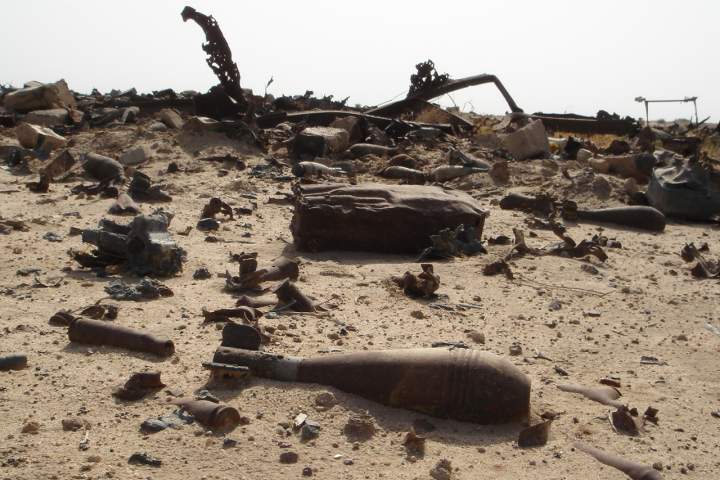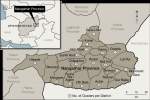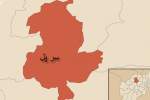The explosive remnants of war (ERW) and improvised explosive devices (IEDs) kill or maim more than 120 people every month in the militancy-hit Afghanistan, authorities said.
Publish dateMonday 6 April 2020 - 20:07
Story Code : 207103
"The home-made IEDs and explosive remnants of war (ERW), including unexploded ordnance (UXO) and abandoned explosive ordnance (AXO), kill or maim more than 120 Afghans every month," Afghanistan's State Ministry for Disaster Management (SMDM) said in a statement reaching media on Monday.
The statement was issued in the wake of the International Day for Mine Awareness and Assistance in Mine Action, which falls on April 4 every year.
Due to the outbreak of COVID-19 pandemic, the Afghan authorities failed to commemorate the day which had regularly been marked in Afghanistan in the past, according to the statement.
Taliban militants and other insurgent groups in the country have been using IEDs to make roadside bombs and landmines to target security forces, but the lethal weapons also inflict casualties on civilians.
"The figures given on the victims suggest that more than 60 percent of the monthly casualties were from improvised explosive devices (IEDs)," said the statement.
"Unprecedented increase in civilians' casualties from landmines, unexploded ordnance, the legacy of the past wars and improvised explosives devices (IEDs) are a matter of concern," the statement noted.
The Afghan civilians continue to bear the brunt of armed conflicts as more than 3,400 civilians were killed and over 6,900 others injured in conflict-related incidents in 2019, according to the figures released by the UN mission in the country.
Out of the total casualties, more than 880 civilians were killed and over 3,450 others wounded in suicide and non-suicide IED explosions in 2019.
The daily based increase in civilian casualties from landmines highlights the necessity of the continuation of the humanitarian program which highly depends on international donors, the SMDM statement said.
The statement acknowledged that "it was impossible to have Afghanistan free of mine without international support."
The Mine Action Program for Afghanistan (MAPA) has cleaned some 56 square km of land from landmines and explosive ordnance over the past 11 months, in the wake of challenges including inaccessibility of some regions and lack of budget, according to the statement.
The statement was issued in the wake of the International Day for Mine Awareness and Assistance in Mine Action, which falls on April 4 every year.
Due to the outbreak of COVID-19 pandemic, the Afghan authorities failed to commemorate the day which had regularly been marked in Afghanistan in the past, according to the statement.
Taliban militants and other insurgent groups in the country have been using IEDs to make roadside bombs and landmines to target security forces, but the lethal weapons also inflict casualties on civilians.
"The figures given on the victims suggest that more than 60 percent of the monthly casualties were from improvised explosive devices (IEDs)," said the statement.
"Unprecedented increase in civilians' casualties from landmines, unexploded ordnance, the legacy of the past wars and improvised explosives devices (IEDs) are a matter of concern," the statement noted.
The Afghan civilians continue to bear the brunt of armed conflicts as more than 3,400 civilians were killed and over 6,900 others injured in conflict-related incidents in 2019, according to the figures released by the UN mission in the country.
Out of the total casualties, more than 880 civilians were killed and over 3,450 others wounded in suicide and non-suicide IED explosions in 2019.
The daily based increase in civilian casualties from landmines highlights the necessity of the continuation of the humanitarian program which highly depends on international donors, the SMDM statement said.
The statement acknowledged that "it was impossible to have Afghanistan free of mine without international support."
The Mine Action Program for Afghanistan (MAPA) has cleaned some 56 square km of land from landmines and explosive ordnance over the past 11 months, in the wake of challenges including inaccessibility of some regions and lack of budget, according to the statement.
avapress.net/vdccxmqi12bqxs8.-ya2.html
Tags
Top hits












